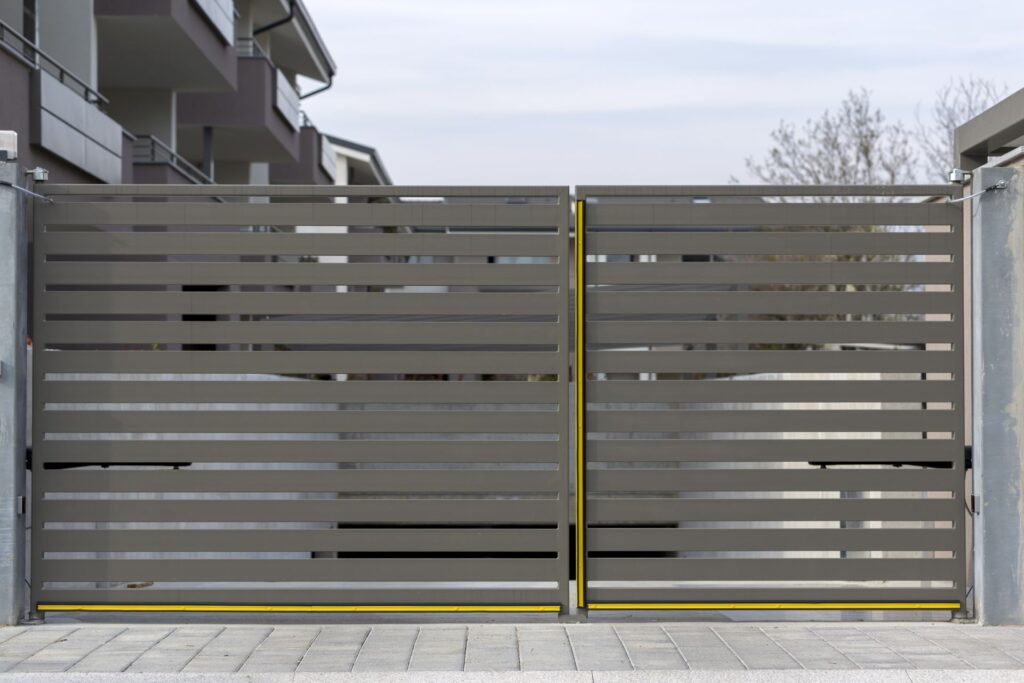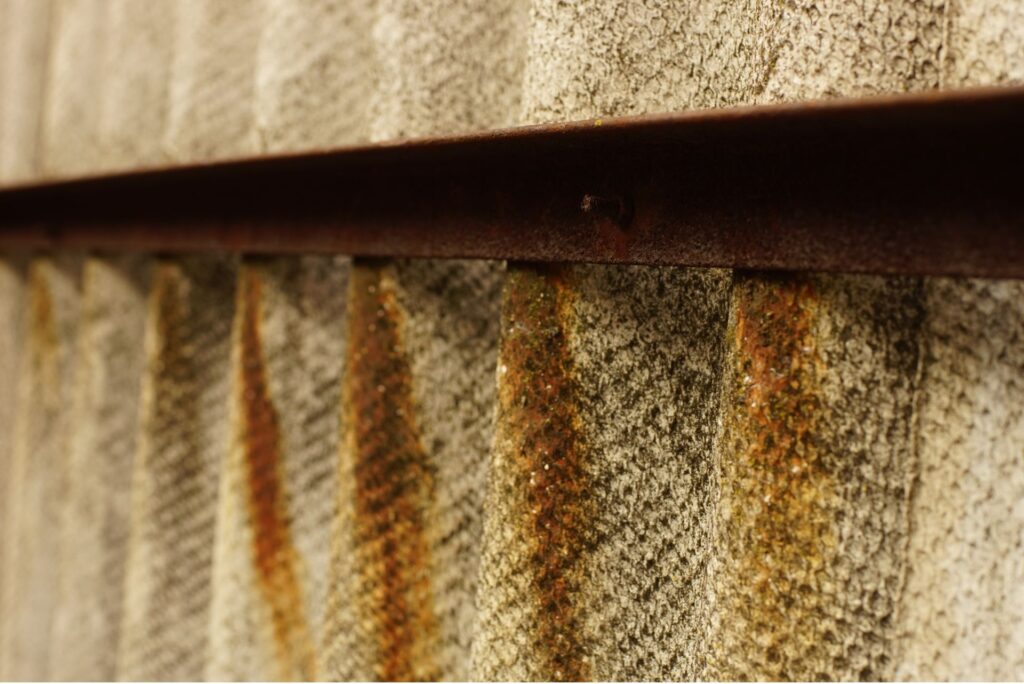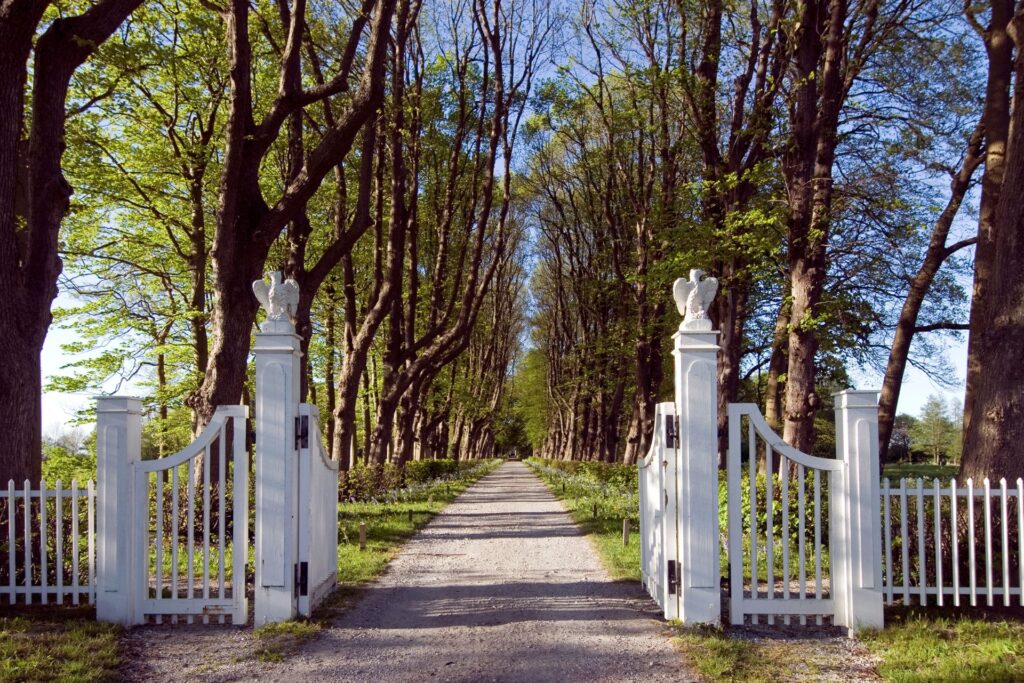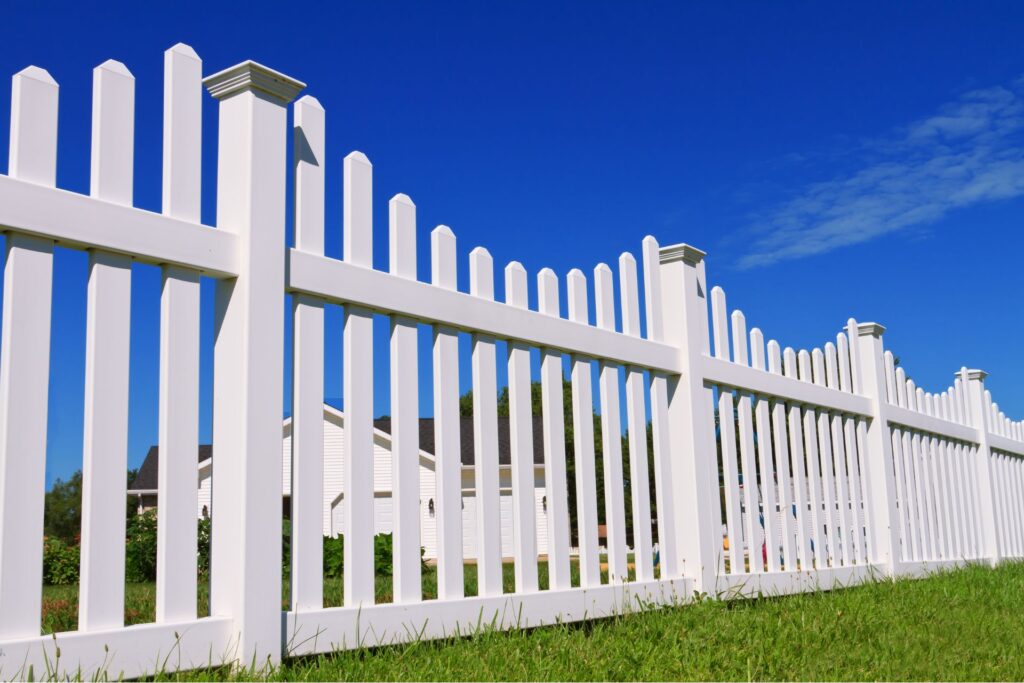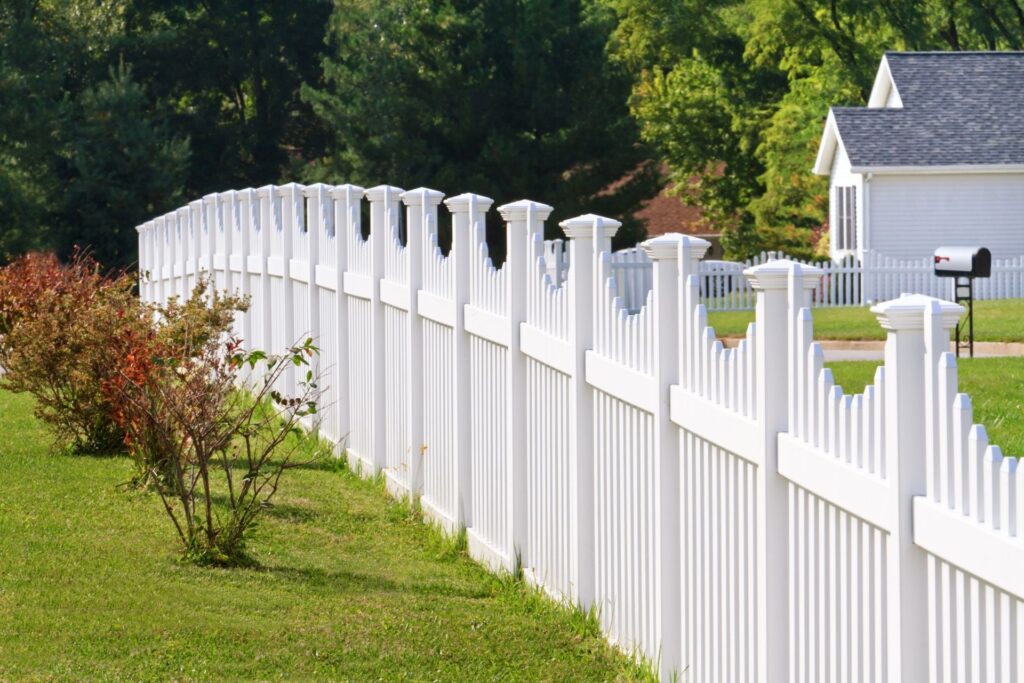Welcome to your ultimate guide on choosing between aluminium and wood gates! If you’ve ever found yourself standing in front of your home, imagining how a sleek, sturdy gate could enhance your property’s look and security, you’re not alone. With so many materials available, it’s easy to feel overwhelmed by the decision. Aluminium and wood are two of the most popular choices, each with its own unique benefits and challenges. In this post, we’ll dive deep into the pros and cons of both, exploring durability, aesthetics, maintenance, cost, and more, so you can make the best choice for your home. Let’s get started!
Aluminium gates are often considered better than wood for several reasons: they are more durable, require less maintenance, and are resistant to rust, warping, and pests. While wooden gates offer a classic, natural look, they require regular upkeep like painting or staining to prevent rotting or weather damage. Aluminium gates, though typically more expensive upfront, tend to be more cost-effective over time due to their long lifespan and low maintenance needs. Ultimately, the best choice depends on your priorities for aesthetics, budget, and long-term upkeep.
Table of Contents
Overview: Aluminium vs. Wood Gates
When it comes to choosing the perfect gate for your home, aluminium and wood are two materials that dominate the conversation. Both have their unique characteristics, histories, and benefits. Whether you’re leaning toward a sleek modern look or prefer a more rustic, traditional vibe, understanding the key differences between aluminium and wood gates can help you make an informed decision.
A Brief History and Rise in Popularity
Over the past few decades, aluminium gates have surged in popularity, especially in modern residential and commercial properties. Their sleek, contemporary design and durability make them an appealing choice for homeowners looking for a low-maintenance yet stylish option. In urban environments and newly developed suburbs, aluminium gates fit seamlessly into modern architecture. They’re seen as a symbol of forward-thinking design, blending practicality with aesthetics.
In contrast, wooden gates have a much older, more traditional appeal. Wood has been a staple material for gates for centuries, known for its warmth, natural beauty, and timeless charm. Historically, wooden gates were a common feature in both rural and urban settings, offering security and privacy while also enhancing the visual appeal of homes. Today, wooden gates continue to be favored by those who appreciate classic designs and the natural, organic feel that wood brings to any space.
Material Composition: What Are They Made Of?
Understanding what these gates are made of is key to grasping their strengths and weaknesses.
Aluminium Gates: Aluminium is a lightweight metal that boasts impressive durability and resistance to corrosion. It’s an ideal material for gates because it doesn’t rust, making it perfect for regions with high humidity or heavy rainfall. Additionally, aluminium gates are often powder-coated, adding an extra layer of protection and allowing homeowners to choose from a wide variety of colors and finishes. The material’s lightweight nature also makes aluminium gates easier to install and operate, requiring less force to open and close, whether manually or via an automated system.
Wooden Gates: Wood, on the other hand, is a natural material that comes in various types, each offering different levels of durability, texture, and appearance. Hardwood options like oak, teak, or mahogany are popular for their robustness and longevity, whereas softwoods like pine or cedar are more affordable and easier to work with but may require more maintenance over time. Wood’s natural grain and ability to be stained or painted in different shades allow for a high degree of customization, giving each wooden gate a unique and personalized look.
While wood adds warmth and character to any home, it is also more susceptible to weathering, requiring regular treatment to prevent rot, warping, or insect damage. However, with proper care, wooden gates can last for decades, providing both security and aesthetic appeal.
Final Thoughts
The decision between aluminium and wood gates ultimately comes down to your personal preferences, the style of your home, and your long-term maintenance considerations. Aluminium is ideal for those seeking a modern, low-maintenance option, while wood offers a classic, timeless appeal that can add a rich, natural element to your property. Understanding the history, popularity, and composition of these materials will guide you toward the best choice for your specific needs.
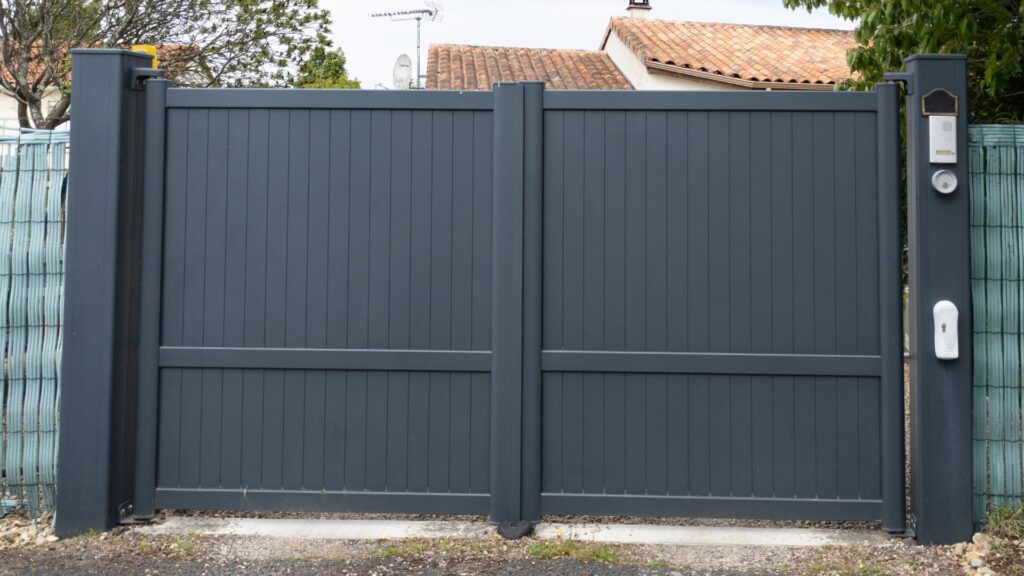
Durability and Longevity
When considering an investment in gates for your property, it’s essential to think about how long they will last and what kind of maintenance they will require over the years. Durability and longevity are key factors, especially for outdoor structures constantly exposed to weather conditions. Let’s compare the durability and longevity of aluminium and wooden gates, two popular choices, to help you make an informed decision.
Aluminium Gates: Superior Resistance and Minimal Maintenance
Aluminium gates are a top choice when it comes to durability. One of the most significant advantages of aluminium is its resistance to weather elements. Unlike wood or iron, aluminium will not rust, warp, or crack, even when exposed to harsh climates. Whether it’s blazing sunlight, heavy rain, or freezing cold, aluminium gates remain sturdy and intact, making them perfect for all types of environments.
This resistance is particularly beneficial in coastal areas where salt and moisture are common in the air, which can quickly degrade other materials. Aluminium’s natural ability to withstand these conditions means it can thrive in these regions without corroding, even after many years.
From a maintenance perspective, aluminium gates require very little upkeep. All they need is occasional cleaning to remove dirt or debris that may accumulate over time. This makes aluminium a convenient choice for homeowners looking for a low-maintenance, long-lasting solution.
Wooden Gates: Traditional Charm but With More Maintenance
Wooden gates, on the other hand, offer a different kind of aesthetic appeal with their natural beauty and timeless charm. However, the durability of wooden gates depends significantly on the type of wood used. Hardwoods, such as oak and teak, are naturally more durable and can last longer than softwoods like pine or cedar, but they come at a higher price point.
Wood, while beautiful, is more vulnerable to common environmental issues. Over time, wooden gates are prone to warping due to moisture exposure, rotting in damp conditions, and damage from insects such as termites. These issues can significantly reduce the lifespan of a wooden gate if not properly cared for.
Maintaining a wooden gate involves more effort compared to aluminium. To prevent warping, rotting, and insect damage, wooden gates need to be regularly treated with paint, stain, or sealant. This helps to preserve the wood’s integrity and extend its life, but it requires ongoing attention and maintenance over the years.
Which Lasts Longer?
In terms of longevity, aluminium gates typically outlast wooden gates. The natural durability of aluminium, combined with its minimal maintenance requirements, makes it a longer-lasting option overall. While hardwood gates can last a reasonable amount of time with proper care, they will still require significantly more maintenance than aluminium.
For homeowners seeking a low-maintenance, weather-resistant gate that can withstand the test of time, aluminium is the clear winner. However, if you prefer the traditional look of wood and are willing to invest the time and effort into regular maintenance, a wooden gate can also be a great option, depending on your specific needs and climate conditions.
In conclusion, aluminium gates offer superior durability and longevity, especially in harsh or coastal environments, making them a better long-term investment for those seeking minimal upkeep. Meanwhile, wooden gates bring natural beauty but require more ongoing maintenance to ensure they last as long as possible.

Aesthetics And Customization Options
When selecting the right gate for your home, aesthetics play a crucial role. A gate isn’t just about security or privacy—it’s often the first thing people notice when approaching your property. That’s why it’s essential to choose a material and style that not only complements your home’s architecture but also enhances its curb appeal. Two popular options for homeowners are aluminium gates and wooden gates, each offering distinct looks and customization possibilities.
Aluminium Gates: Sleek, Modern, and Versatile
Aluminium gates are synonymous with modernity. They offer a sleek, streamlined appearance that perfectly complements contemporary homes. Their minimalistic design, clean lines, and metallic sheen are ideal for properties with a modern architectural style. One of the key reasons why aluminium gates have grown in popularity is their ability to maintain a modern aesthetic while being incredibly durable and low-maintenance.
Customization Options for Aluminium Gates:
Aluminium gates are not just about durability; they also offer a variety of customization options that allow homeowners to infuse their personality into their gate’s design:
- Powder-coating in a range of colors: Unlike traditional metal finishes, powder-coating allows you to choose from an extensive color palette, ensuring the gate matches or contrasts beautifully with your home’s exterior.
- Decorative patterns: For those who want to add a bit of flair, aluminium gates can be adorned with intricate designs, such as geometric patterns, artistic motifs, or even personal monograms.
- Combination with other materials: Aluminium pairs wonderfully with materials like glass or wood accents, offering a striking mix of modern and natural elements. This combination can soften the metallic look and add more texture to the gate’s appearance.
Wooden Gates: Timeless Beauty and Rustic Charm
Wooden gates offer a completely different aesthetic. They bring warmth, natural beauty, and a timeless appeal that makes them a perfect fit for traditional, rustic, or countryside homes. The natural grain and texture of wood add a sense of luxury and craftsmanship that is hard to replicate with other materials. Whether you want a gate that exudes rustic charm or one that offers a grand, stately appearance, wood is a material that effortlessly enhances the beauty of any home.
Customization Options for Wooden Gates:
Wood is an incredibly versatile material that can be customized to suit various styles and preferences:
- Carved designs: Skilled artisans can create custom carvings, from intricate patterns to simple, elegant designs, making each wooden gate unique.
- Paint or stain options: Wooden gates can be painted in bold colors for a contemporary twist or stained to highlight the natural beauty of the wood grain. The right finish can make all the difference, allowing the gate to blend in or stand out as a focal point.
- Choice of wood grain: Different wood species offer distinct grains and textures, from the smoothness of maple to the rich, bold lines of oak or mahogany. Each type of wood provides a different aesthetic, offering a truly bespoke appearance.
Which Looks Better? Aluminium or Wooden Gates?
When it comes to deciding which gate looks better, it all boils down to personal taste and the architectural style of your home. Aluminium gates are often favored for modern or industrial-style homes, thanks to their sleek appearance and contemporary vibe. They are perfect for homeowners who prefer a minimalist look with a touch of elegance and low maintenance.
On the other hand, wooden gates are the go-to choice for those who prefer a more traditional, classic look. They bring a sense of warmth, charm, and organic beauty that is unmatched by metal gates. Whether it’s a stately manor, a country cottage, or a rustic farmhouse, wooden gates add a touch of timeless beauty.
In the end, whether you choose the modern allure of aluminium or the classic charm of wood, both materials offer a range of customization options that ensure your gate will not only function perfectly but also enhance the overall look of your home. It’s about finding the right balance between style, functionality, and personal preference to create an entrance that makes a lasting impression.

Security: How Do They Compare?
When selecting the perfect gate for your property, security is often a top priority. Two of the most popular options—aluminium and wooden gates—each offer unique advantages in this regard. Let’s take a closer look at how these two materials stack up in terms of strength, durability, and security.
Aluminium Gates: A Modern Security Solution
One of the key advantages of aluminium gates is their impressive strength-to-weight ratio. Aluminium is known for being lightweight yet exceptionally strong, which makes it an ideal material for gates that need to be both secure and easy to operate. Its robust nature allows aluminium gates to withstand attempts to force entry while maintaining a sleek, modern appearance.
Moreover, aluminium gates can easily integrate advanced security features. These gates are often designed to support modern locking mechanisms, such as automatic locks, keypads, and remote access systems. This adaptability makes them a fantastic choice for homeowners looking for a technologically advanced security solution that requires minimal manual intervention.
Another key benefit of aluminium gates is their resistance to rust and corrosion. This ensures that their structural integrity remains intact over time, providing consistent security even in harsh weather conditions. As a result, aluminium gates typically require less frequent maintenance compared to wooden gates, ensuring long-lasting protection for your property.
Wooden Gates: Classic Strength with Potential Drawbacks
Wooden gates, on the other hand, provide a traditional, solid sense of security. The natural heft of wood creates a physical barrier that can be quite formidable. A well-constructed wooden gate, especially when made from durable hardwoods like oak or teak, can offer excellent protection for your home.
However, there are some challenges to consider when choosing wooden gates for security. Wood is highly susceptible to the elements, and over time, exposure to moisture, heat, and cold can cause it to warp, crack, or weaken. This deterioration can compromise the gate’s security unless regular maintenance, such as sealing and painting, is performed.
Additionally, many wooden gates may require reinforcements to maintain their security capabilities. Metal frames or steel reinforcements can be added to support the structure, while extra locking mechanisms may be needed to ensure the gate remains secure over time. Without these enhancements, wooden gates might not provide the same level of long-term security as their aluminium counterparts.
Which Offers Better Security?
In the battle between aluminium and wooden gates, both materials provide a reliable level of security. However, aluminium gates tend to have the edge in terms of long-lasting protection and lower maintenance requirements. While wooden gates offer a solid and traditional barrier, their susceptibility to weather and the need for additional reinforcements can make them less practical for long-term security without regular upkeep.
Aluminium gates, with their superior strength-to-weight ratio, resistance to environmental wear, and ability to incorporate modern locking systems, often prove to be the more secure and durable choice in the long run. For homeowners seeking a balance of aesthetics, low maintenance, and cutting-edge security, aluminium gates are likely the better option.

Environmental Impact: Sustainability And Eco-Friendliness
When choosing between aluminium and wooden gates, it’s essential to consider the environmental impact and sustainability of both materials. As homeowners and businesses alike become more eco-conscious, understanding the pros and cons of each gate material can help make an informed decision that aligns with environmental values.
Aluminium Gates: A Sustainable Option?
One of the key advantages of aluminium gates is their recyclability. Aluminium is a highly sustainable material because it can be recycled repeatedly without losing its quality or strength. In fact, the recycling process for aluminium uses only about 5% of the energy required to produce new aluminium. This means that gates made from recycled aluminium have a significantly lower carbon footprint compared to those made from newly extracted materials.
For eco-conscious consumers, choosing a gate made from recycled aluminium is an excellent way to reduce environmental impact. It not only prevents waste but also supports the circular economy by ensuring that existing materials are reused efficiently. Additionally, aluminium is highly durable and corrosion-resistant, meaning that these gates have a long lifespan, further reducing the need for frequent replacements and conserving resources over time.
However, it’s worth noting that the initial production of aluminium is energy-intensive. The extraction and refining of bauxite ore (the primary source of aluminium) require a substantial amount of energy, often derived from fossil fuels. This can contribute to greenhouse gas emissions and other environmental impacts. While the recyclability of aluminium helps offset some of these concerns, it’s important to consider the full lifecycle of the material when evaluating its environmental sustainability.
Wooden Gates: A Natural, Renewable Choice
Wooden gates, on the other hand, offer a more natural, renewable alternative to aluminium. When sourced responsibly, wood can be an environmentally friendly option. Many homeowners opt for gates made from sustainably harvested wood, certified by organizations such as the Forest Stewardship Council (FSC). These certifications ensure that the wood comes from forests managed to promote biodiversity, conserve ecosystems, and protect the rights of workers and communities.
For those looking to minimize their environmental footprint further, reclaimed wood presents an attractive option. By reusing wood from old buildings, barns, or other structures, homeowners can prevent deforestation and reduce the demand for newly cut trees. Reclaimed wood also adds character and uniqueness to gates, as each piece tells a story from its previous life.
Nevertheless, there are environmental downsides associated with wooden gates. The most significant concern is deforestation. Unsustainable logging practices contribute to the destruction of forests, loss of biodiversity, and increased carbon emissions. Therefore, it’s critical to ensure that the wood used for gates is sourced from responsibly managed forests or recycled materials. Additionally, wooden gates may require more maintenance than aluminium gates, including treatments or finishes to prevent rot, which can involve chemicals that may not be eco-friendly.
Which Is More Eco-Friendly?
Determining whether aluminium or wooden gates are more eco-friendly depends largely on the sourcing and production practices involved. Aluminium gates made from recycled materials offer significant sustainability benefits due to their longevity and the energy savings associated with recycling. However, the initial energy demands of aluminium production can’t be ignored.
On the other hand, wooden gates sourced from sustainably managed forests or made from reclaimed wood can be a highly eco-conscious choice. However, the environmental impact of deforestation and the use of chemical treatments must be considered.
Ultimately, both materials can be environmentally friendly, provided they are sourced and manufactured responsibly. Homeowners should evaluate the sustainability credentials of the supplier and opt for materials that align with their environmental goals. Whether prioritizing recyclability, renewability, or the reduction of carbon footprints, both aluminium and wood can contribute to a more sustainable future when chosen thoughtfully.

Cost Comparison: Upfront And Long-Term Costs
When considering a new gate for your property, it’s essential to not only think about the initial price but also the long-term expenses that can impact your budget over time. In this section, we’ll break down the cost differences between aluminium gates and wooden gates, helping you decide which option is truly more cost-effective in the long run.
Aluminium Gates: Higher Upfront Costs, Lower Long-Term Maintenance
Aluminium gates are known for their sleek, modern appearance and durability, but they come with a higher upfront cost. This might make them seem less appealing at first glance, especially if you’re trying to save money on the initial investment. However, what’s important to consider is the significant reduction in maintenance costs over time.
One of the key benefits of aluminium is that it’s highly resistant to corrosion, rust, and environmental wear and tear. Unlike other materials, aluminium does not warp, crack, or need frequent repainting. This means that once you install an aluminium gate, you’ll face minimal upkeep expenses. The sturdy nature of this metal also contributes to its longevity, making it a worthwhile investment for homeowners who want a gate that will last for years without constant repairs or replacements.
Wooden Gates: Affordable Initially, But Higher Long-Term Costs
Wooden gates, on the other hand, often attract homeowners due to their traditional aesthetic and lower initial cost. Depending on the type of wood, you can find a wooden gate for significantly less than its aluminium counterpart. However, while the upfront cost may be more manageable, the ongoing expenses for maintenance can quickly add up.
Wood is a natural material that requires regular attention to keep it in good condition. It needs to be sealed, painted, or stained periodically to protect it from moisture, UV rays, and pests like termites. Over time, wooden gates are more likely to experience issues such as warping, cracking, and rot, which will require repairs or even full replacements. These continuous maintenance efforts contribute to higher long-term costs.
Which Is More Cost-Effective?
In terms of overall value, aluminium gates offer the best long-term solution. While the upfront cost of an aluminium gate is higher, the minimal maintenance and long lifespan of the material result in lower expenses over time. Wooden gates, though cheaper initially, tend to require more frequent repairs and upkeep, which increases the total cost over the gate’s lifetime.
Ultimately, if you’re looking for an investment that will stand the test of time with minimal hassle, aluminium is the more cost-effective option. For those focused on short-term savings, wood may seem like the better choice, but over the years, the cumulative maintenance costs make aluminium a smarter financial decision.

Maintenance And Upkeep
When choosing between aluminium and wooden gates for your property, one of the most important factors to consider is maintenance. A well-maintained gate not only enhances curb appeal but also extends the lifespan of the structure. Below, we break down the maintenance requirements for both aluminium and wooden gates so you can make an informed decision.
Aluminium Gates: Low-Maintenance and Hassle-Free
Aluminium gates are highly praised for their durability and minimal upkeep. Unlike traditional materials, these gates require very little to maintain their appearance and function over the years. Here’s why aluminium gates stand out in terms of ease of maintenance:
1. Periodic Cleaning: The only regular task involved is occasional cleaning, typically with mild soap and water. This helps to remove dirt, dust, or any buildup from environmental exposure. Most homeowners find that cleaning their aluminium gate once or twice a year is sufficient to keep it looking pristine.
2. Scratch or Dent Inspection: Although aluminium is resistant to corrosion, it’s a good idea to periodically inspect for minor scratches or dents, especially if your gate is in a high-traffic area. Minor cosmetic damage is easy to repair without compromising the gate’s overall integrity.
3. No Need for Painting or Sealing: One of the biggest advantages of aluminium gates is their resistance to rust and rot. This means that unlike wooden gates, aluminium doesn’t need to be painted, sealed, or treated against moisture or insects. The powder-coated finish typically applied to aluminium gates not only enhances their appearance but also adds a protective layer against the elements.
Aluminium gates are truly a “set it and forget it” option, making them an ideal choice for homeowners who prefer low-maintenance solutions.
Wooden Gates: Regular Care for Longevity
Wooden gates, while classic and aesthetically appealing, come with a more demanding maintenance routine. Wood is a natural material, which makes it susceptible to wear and tear over time, particularly when exposed to the elements. Here’s a breakdown of what wooden gate maintenance entails:
1. Painting, Staining, and Sealing: To keep a wooden gate looking fresh and protected from the elements, you’ll need to regularly paint, stain, or seal it. This is usually recommended every 1-2 years, depending on the climate and how exposed the gate is to sunlight and rain. Each application can be time-consuming and may require hiring professionals, adding to the cost of ownership.
2. Protection Against Rot and Insects: Wood, being a porous material, can absorb moisture, leading to rot. It’s also a target for insects such as termites and carpenter ants. To prevent this, regular inspections are necessary, along with the potential application of insect repellent treatments and rot-resistant finishes.
3. Repairing Damage: Wooden gates are more vulnerable to damage from weather extremes, such as rain, humidity, or intense heat. Cracks, warping, or splitting can occur, and if the gate is not properly sealed, rot may develop. In cases where rot or insect damage sets in, sections of the gate may need to be replaced, which can be costly and labor-intensive.
While wooden gates add a warm, natural feel to any property, they come with the need for constant vigilance and care to ensure they remain in good condition.
Which Gate Is Easier to Maintain?
When it comes to ease of maintenance, aluminium gates clearly win. Their resistance to rust, rot, and weather damage, coupled with the lack of need for regular painting or sealing, makes them the perfect choice for busy homeowners who don’t want to invest time and money into frequent upkeep. In contrast, wooden gates, while beautiful, demand ongoing attention to maintain their appearance and functionality. For those seeking a low-maintenance, long-lasting solution, aluminium gates are the obvious choice.

Installation: What To Expect
When deciding between aluminium and wooden gates, it’s essential to consider the installation process. The installation experience can vary significantly depending on the material you choose, affecting both time and cost. Let’s break down the key factors for each type of gate:
Aluminium Gates
Aluminium gates are known for being lightweight, which is a major advantage when it comes to installation. Because of their light weight, aluminium gates are easier to handle, move, and position during installation. This characteristic also means they generally require less structural support, allowing for a simpler setup. For example, lighter materials mean that the gate posts and hinges don’t have to bear as much weight, making the overall installation quicker and more straightforward.
In fact, many DIY enthusiasts find that aluminium gates are much easier to install compared to other materials, especially for smaller or medium-sized gates. The reduced need for heavy-duty equipment or extensive structural reinforcement saves time and reduces the complexity of the process, making it a popular choice for homeowners looking to tackle installation on their own.
Wooden Gates
Wooden gates, on the other hand, present a different set of challenges. Being significantly heavier than aluminium, wooden gates require stronger support systems. This means you’ll likely need heavier-duty posts, hinges, and possibly additional reinforcements to ensure the gate remains sturdy and well-balanced. Wooden gates also tend to be more prone to warping or sagging over time if not installed correctly, adding to the need for precise craftsmanship during the setup process.
Due to the weight and the potential for complications during installation, many homeowners opt for professional installation services when choosing wooden gates. While it’s certainly possible to install wooden gates on your own, it’s generally a more complex and labor-intensive process compared to aluminium.
Which Is Easier to Install?
In summary, aluminium gates are typically easier to install, particularly for DIY homeowners. Their lightweight design reduces the need for heavy-duty support structures, making the entire installation process faster and more manageable. On the other hand, wooden gates, while offering a classic aesthetic appeal, often require professional help due to their weight and the complexity involved in ensuring proper balance and durability.
For those seeking a quick and efficient installation process, aluminium is the clear winner. However, if you prefer the traditional look and feel of wood and are willing to invest in a more complex setup, wooden gates may still be worth the extra effort.

Common Myths And Misconceptions
When considering installing gates for your property, you might have come across various opinions, some of which are based on common misconceptions. Here, we’ll tackle three widespread myths about aluminium gates, providing clarity on the reality behind these misunderstandings.
Myth 1: Aluminium Gates Are Too Light to Be Secure
One of the most persistent myths about aluminium gates is that their lightweight nature makes them less secure. This couldn’t be further from the truth. Aluminium, while lighter than materials like steel or wood, is incredibly strong and resilient.
The key to its strength lies in its composition. Aluminium alloys used in gate manufacturing are engineered to withstand high impacts and resist bending or warping. Unlike wood, which can rot, or steel, which can rust, aluminium remains steadfast in all weather conditions, providing a robust barrier without compromising on security.
In fact, the lightweight property of aluminium can be seen as an advantage. It makes the gate easier to operate, reducing strain on motors if it’s automated, and lowering maintenance needs over time. Rest assured, choosing an aluminium gate does not mean you’re sacrificing security for convenience.
Myth 2: Wooden Gates Are Always More Attractive
While wooden gates have long been admired for their traditional aesthetic, assuming that wood is always the most attractive option overlooks the versatility of aluminium gates. Aluminium offers virtually endless design possibilities. Whether you’re looking for a sleek modern look or something that mimics the appearance of wood, aluminium gates can be customized to match your vision.
Modern manufacturing techniques allow aluminium gates to be powder-coated in a wide range of colors and finishes, including wood-grain effects that closely resemble natural wood. These finishes not only provide the visual appeal of wood but also come without the high-maintenance requirements like sanding, staining, or replacing panels due to weather damage.
So, while wood might have its charm, aluminium gates give you the flexibility to achieve an equally attractive, low-maintenance, and durable solution for your property’s entrance.
Myth 3: Aluminium Is More Expensive and Not Worth the Cost
At first glance, aluminium gates may seem more expensive than other materials. However, this is another myth that doesn’t take into account the long-term benefits of aluminium. When assessing the value of a gate, it’s important to consider not just the upfront cost but also the long-term savings.
Aluminium gates require significantly less maintenance than wood, which can warp, rot, or need frequent treatments to stay in good condition. Unlike steel, which is prone to rust, aluminium is naturally resistant to corrosion, ensuring that your investment stands the test of time. In areas with harsh weather conditions, aluminium proves its worth as it won’t deteriorate over the years.
In addition, aluminium gates are often more cost-effective in terms of installation. Their lightweight nature makes transportation and installation easier and cheaper, especially if you’re opting for a large, automated system. When factoring in reduced maintenance costs and the longevity of the material, aluminium gates prove to be a wise investment that offers durability and long-term savings.
These myths about aluminium gates often deter people from exploring the real benefits of this modern material. In reality, aluminium gates are strong, secure, and highly customizable, all while offering exceptional value over the long term. Whether you’re concerned about aesthetics or security, it’s clear that aluminium gates can meet and exceed expectations, making them a smart choice for any property.

FAQs: About Are Aluminium Gates Better Than Wood
Is aluminium more durable than wood for gates?
Yes, aluminium is generally more durable than wood for gates. It is resistant to rust, warping, and pest damage, making it an excellent long-term option. Wood, while strong, can deteriorate over time due to exposure to the elements and requires more maintenance to stay in good condition.
Which gate material requires less maintenance: aluminium or wood?
Aluminium gates require far less maintenance than wooden gates. Aluminium only needs occasional cleaning to maintain its appearance, while wooden gates need regular painting, staining, or sealing to protect against weather damage and pests.
Are aluminium gates more expensive than wood gates
Aluminium gates typically have a higher upfront cost compared to wood gates. However, because they last longer and require less maintenance, aluminium gates can be more cost-effective in the long run.
Can you paint or customize aluminium gates?
Yes, aluminium gates can be customized in a variety of ways, including powder-coating in different colors, adding decorative patterns, or combining with materials like glass. This makes them versatile and suitable for different styles.
Which gate material is better for the environment: aluminium or wood?
Both materials can be eco-friendly depending on how they are sourced. Aluminium is fully recyclable and often made from recycled materials, though its production is energy-intensive. Wood can be more sustainable if it’s sourced from responsibly managed forests, but concerns about deforestation make it important to verify the source.
Which gate material looks better: aluminium or wood?
The aesthetics of aluminium versus wood come down to personal preference. Aluminium gates often have a sleek, modern look that appeals to contemporary homeowners, while wooden gates offer a warm, natural, and classic appearance, suitable for traditional or rustic styles.
How long do aluminium gates last compared to wood gates?
Aluminium gates typically last longer than wood gates, often maintaining their appearance and functionality for decades with minimal upkeep. Wood gates, depending on the type of wood and the level of maintenance, may need replacing or significant repairs after 10-15 years.
Are aluminium gates as strong as wood gates?
Yes, aluminium gates are strong despite being lightweight. They offer excellent strength-to-weight ratios, making them secure and durable. Wooden gates can also be strong, but their strength can weaken over time due to factors like rot, weather damage, or pests.
Are aluminium gates better for areas with extreme weather?
Aluminium gates are better suited for areas with extreme weather conditions, especially in coastal or humid environments, where moisture can cause wood to warp, rot, or crack. Aluminium’s rust-resistant properties make it an ideal choice for such regions.
Can I install aluminium or wooden gates myself?
Aluminium gates are lighter and easier to install, making them a better option for DIY projects. Wooden gates are heavier and may require additional support and expertise for installation, making professional help more necessary for a sturdy setup.
Conclusion
When deciding between aluminum and wood for your project, it ultimately depends on your specific needs and preferences. Aluminum is known for its durability, low maintenance, and sleek, modern look, making it an excellent option for those seeking a long-lasting and hassle-free solution. On the other hand, wood offers a timeless, traditional aesthetic but requires more upkeep to maintain its charm over time. Consider what matters most to you—whether it’s a modern versus classic style, budget constraints, or the amount of maintenance you’re willing to handle. It’s always a good idea to consult with local suppliers or gate manufacturers for tailored recommendations, or even reach out to professionals who can guide you toward the best choice for your home.
About the Author:
Mike Veail is a recognized digital marketing expert with over 6 years of experience in helping tradespeople and small businesses thrive online. A former quantity surveyor, Mike combines deep industry knowledge with hands-on expertise in SEO and Google Ads. His marketing strategies are tailored to the specific needs of the trades sector, helping businesses increase visibility and generate more leads through proven, ethical methods.
Mike has successfully partnered with numerous companies, establishing a track record of delivering measurable results. His work has been featured across various platforms that showcase his expertise in lead generation and online marketing for the trades sector.
Learn more about Mike's experience and services at https://theleadguy.online or follow him on social media:

